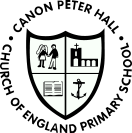The Purple Mash Scheme for Computing was purchased in 2019 with the intention of raising the profile of the subject, increasing staff confidence and subject knowledge through a scaffolded, single platform system with clear progression. The crash courses available through this enabled staff to quickly fill any deficits in children’s knowledge and understanding particularly within the programming elements of the National Curriculum. Funding for a central bank of laptops was sourced and the redesign and repurposing of a library room into a multifunctional Computing Suite has also taken place.
The growth and development program has allowed the computing lead to support staff and pupil subject knowledge to a point where we are now able to increase the breadth of programs, software and hardware included within our curriculum offer through a new multiplatform scheme of work – the NCCE Teach Computing Scheme. This scheme was chosen due to the fact that it is constantly updated and rooted in the latest pedagogical research. In an ever changing technological world we find that our school’s vison “Never Presume” drives our ambition to prepare the children for a digital world beyond the one we currently know.

